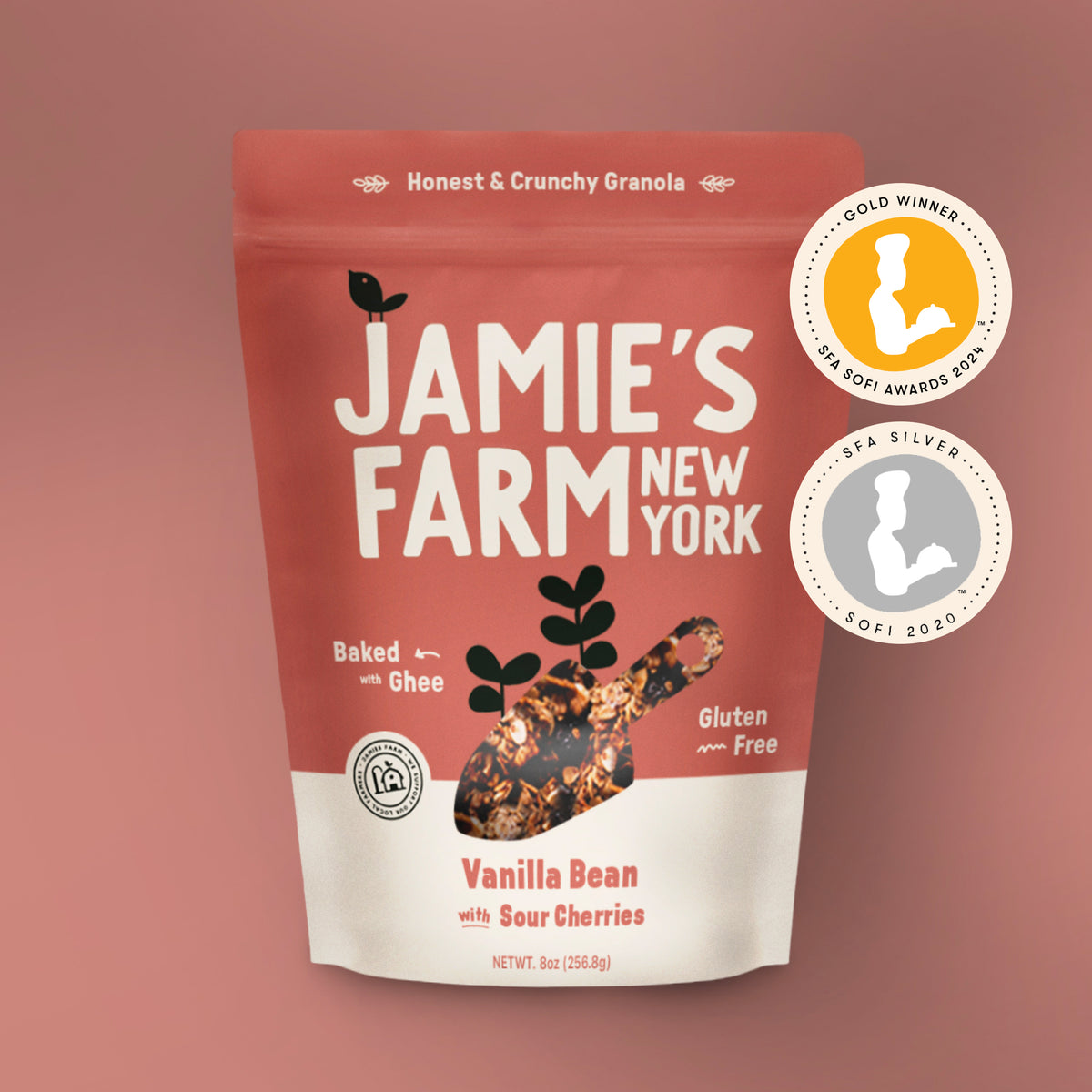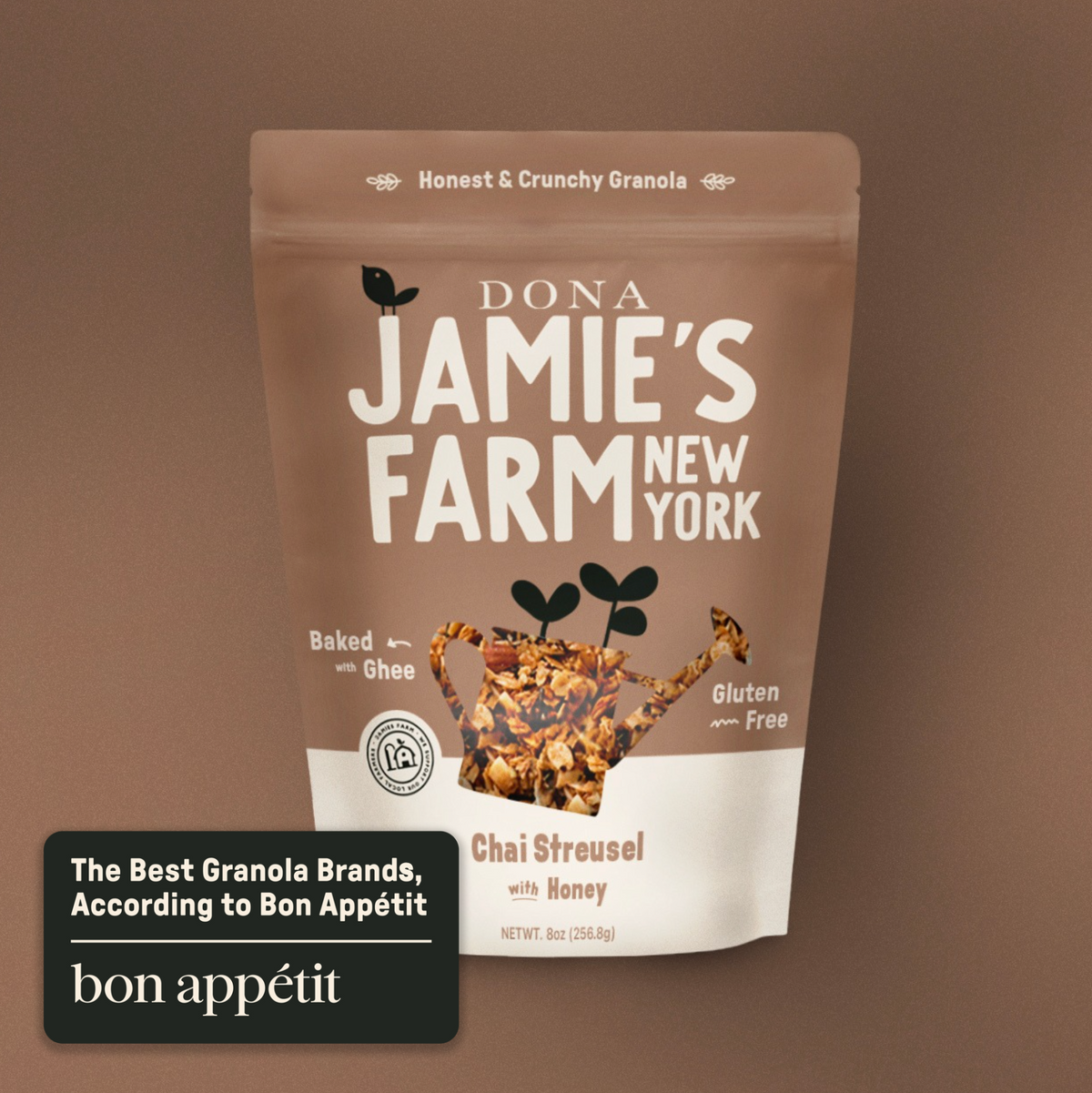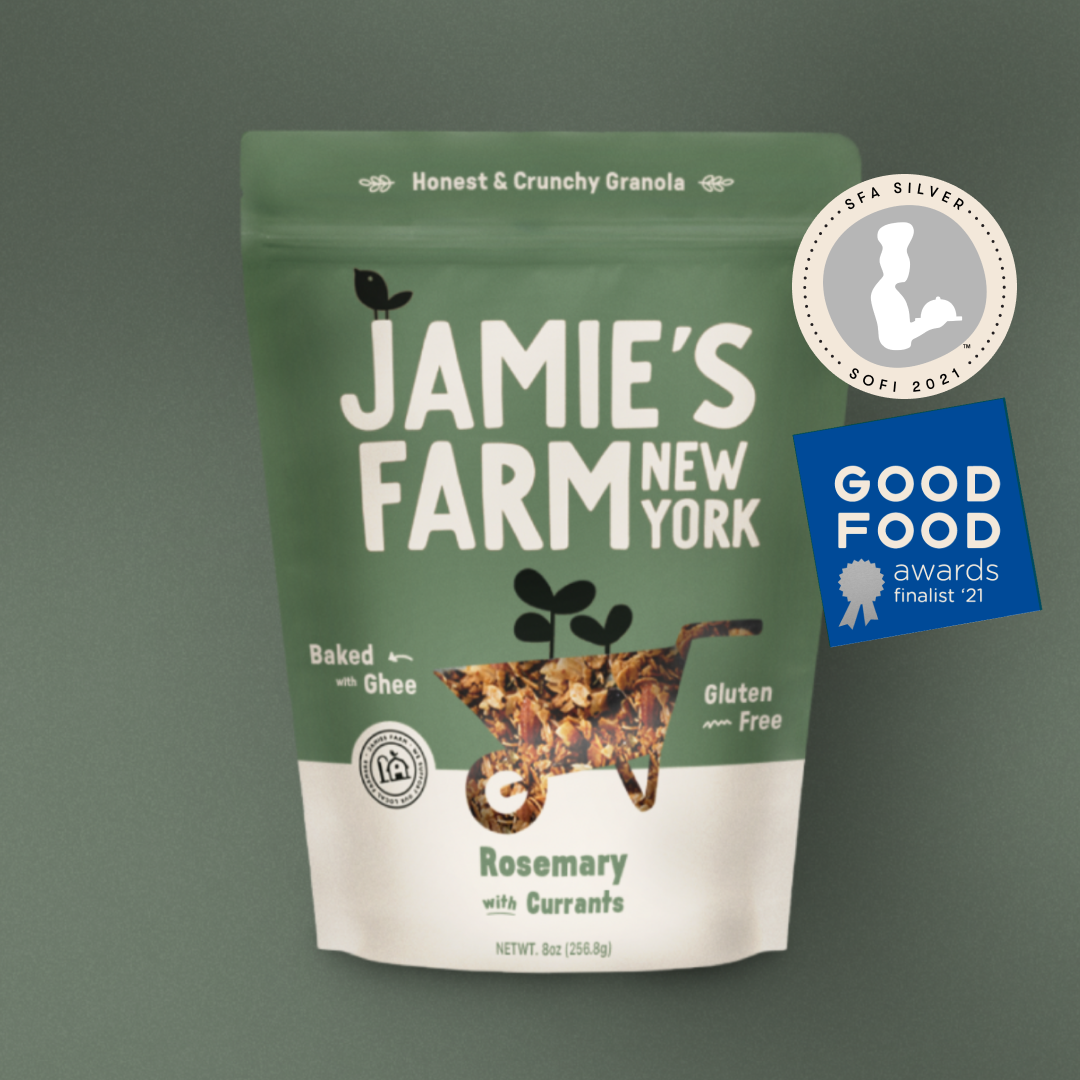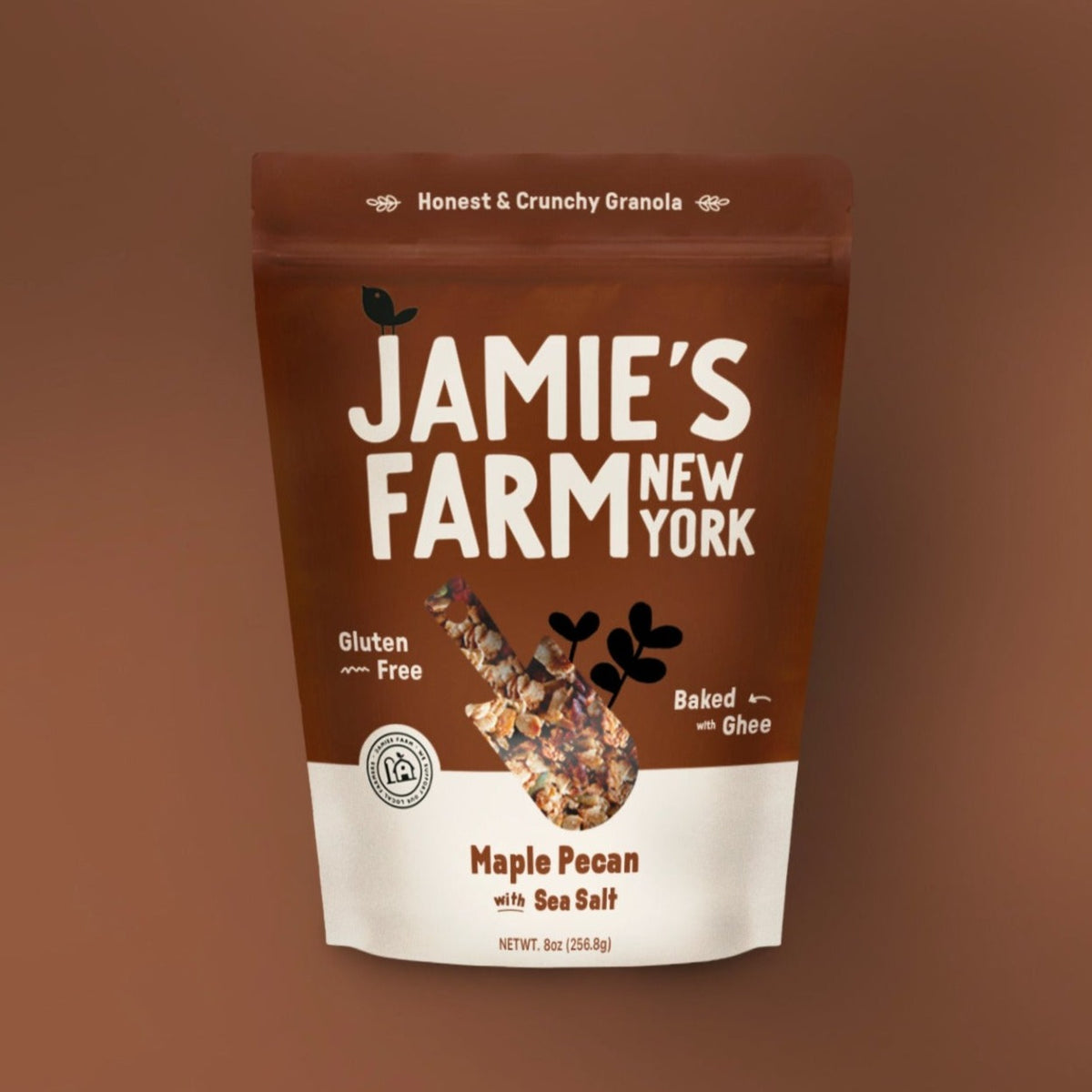Here at Jamie's Farm, we believe that the food you eat has the ability to impact communities, our wellbeing, and the health of our planet. Today, we want to honor the importance of maintaining healthy soils, and to highlight the ways in which it can benefit our health and positively impact our communities!
Why is healthy soil important?
Soil makes life as we know possible. Healthy soils have the ability to:
-
Sequester carbon
-
Retain water for plants to grow
-
Add nutrients to our produce
-
Prevent runoff
-
Promote biodiversity
The problem today? We're rapidly depleting our soil [1] due to modern, intensive agricultural methods such as monoculture cropping, tillage, and insecticide use. Each year, we're losing about 1% of our topsoil, placing the future of our food production at risk.
Healthier Soil = Healthier Food.
Our soil is a complex web of organic matter and microorganisms that contribute to the nutrient density of our food. Unfortunately, over the last century since the introduction of modern agriculture, our food has become less nutritious. We've seen significant declines each generation (up to 38%!) in the nutrients of our produce, including but not limited to: protein, iron, vitamin B2, and vitamin C [2].
This is a huge issue, but we believe there are ways in which you can support healthier soils.

What is Regenerative Agriculture?
Regenerative agriculture acknowledges the role of soil in keeping the earth's carbon system in balance, valuing biodiversity and soil health. Due to farming practices like tillage and mono cropping, we have too little carbon in our soils and too much in the atmosphere. Regenerative agriculture helps restore the balance.

So how can you support healthier soils?
1. Go local.
Support the small farms by visiting your local farmer's market. You'll find that the produce is much more fresh and nutritious than what you find in the grocery store - a lot of that is attributed to the farms' growing practices.
Small farmers tend to be more connected with their land than larger farms, therefore are more dedicated to soil-improving practices for long-term sustainability and profitability. Even if your local farms aren't certified organic (certification can be costly!), you can trust that these farms aren't spraying their crops with fertilizers in the way that industrial farms are.
2. Purchase organic.
If you don't have access to a local farmer's market, we encourage you to buy organic at the grocery store. Fertilizers disrupt the soil microbial community and contribute to land and water pollution. As we know it, pesticide exposure impacts the food we eat, the water we drink, and the air we breathe, resulting in numerous negative health consequences. Both your body and our soil will thank you!3. Purchase cover crops.
Cover cropping is an essential part of crop rotation that help farmers improve soil quality and lay down the groundwork for a healthy harvest. The demands of industrialized agriculture and crop subsidies have created less incentive for farmers to plant cover crops despite their long-term sustainability. As consumers, we can vote with our dollars by creating demand for cover crops such as spelt, rye, barley, buckwheat, and legumes!
4. Go Non-GMO.
GMOs threaten soil health by eradicating biodiversity and weakening soil resiliency. Many GMO crops are specifically engineered to resist certain weed killers, which means that planting more GMOs can result in utilizing more chemical fertilizers.
Across the world, indigenous and small-scale farmers are losing rights to their native seeds, which represent storehouses of biodiversity, in the face of 4 multi-national chemical corporations such as Monsanto [3]. These conglomerates control 60% of our global supply of seeds, threatening our global food system.
At Jamie's Farm, we believe in diversifying our food supply and preserving biodiversity. When we discovered that 90% of the US supply of pumpkin seeds hail from China, we decided to exclusively source heirloom pumpkin seeds from Stonybrook Wholehearted Foods, who works with Martin Farms in upstate New York that grows an heirloom variety of pumpkin called oilseed.
5. Eat more plants. But understand that meat and dairy can be sustainable.
We believe in a more plant-forward diet with limited quantities of meat and dairy that are sustainably and regeneratively produced.
In fact, livestock play a critical part in aiding healthier soils.
A study published by the Journal of Soil and Water Conservation in March 2016 found that with proper regenerative crop and grazing management, livestock have the ability to restore the land, soil, and sequester carbon.
Why? Manure adds microorganisms to the soil, reducing the reliance on tillage and inorganic fertilizers. Cattle grazing can also stimulate grass growth, and by walking on pasture, they can prevent water runoff, and promote healthier soils that capture carbon. The story becomes more complex, so we encourage you to watch this documentary, Sacred Cow.
At Jamie's Farm, we believe in thoughtful sourcing and support local dairy farms across New York and Pennsylvania to source the butter that goes into our ghee. We hope you take a moment today to consider the impact of the foods you eat! If you'd like to learn more, check out our recommended documentaries below.

Documentaries and Reading:
Kiss the Ground (2020)
The World According to Monsanto (2008)
Citations:
1. http://large.stanford.edu/courses/2015/ph240/verso2/
2. https://pubmed.ncbi.nlm.nih.gov/15637215/
3. https://civileats.com/2019/01/11/the-sobering-details-behind-the-latest-seed-monopoly-chart/
4. , , , , , , , , , , , "The role of ruminants in reducing agriculture's carbon footprint in North America". Journal of Soil and Water Conservation, March 2016, 156-164. https://www.jswconline.org/content/71/2/156







0 comments